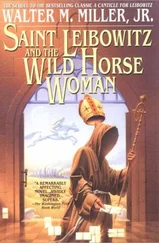She heaved a shaky sigh of anger at her own weakness. “I’ll be fine,” she managed to say. But memories cascaded madly through her head.
Carolyn had shopped so lovingly, had refused store gift wrap, because every purchase had to be brought home and shown to Vern and Mickey for approval. Then she and Mickey had wrapped them all, to make them more personal. Carolyn had gone through extravaganzas with paper and imaginative bows…she and Mickey had fussed and giggled and carried on, and Carolyn had been so happy….
Mickey swore to herself and covered her eyes. She’d never considered herself sentimental, but now she was coming apart over booties and ribbons and bows. She should be made of sterner stuff. But the tears spilled over and slipped down her cheeks.
Get hold of yourself, dammit.
Suddenly Adam Duran was before her, bending on one knee in front of her, putting a hand on each arm of the chair. “Miss Nightingale?” he said. “Michelle? Mickey—don’t cry. Please don’t cry.”
Now chagrin compounded her grief and fear. How stupid to let a stranger see her like this—and his kindness made it worse. It had been easier to be steely when she’d thought him cold and smug.
She kept her eyes covered and bent her head lower, but she could feel more tears coursing down, and her body shook with suppressed sobs.
“Well, no,” he said, sounding flummoxed, “Cry if you need to. Cry if it helps.”
He dug into the pocket of his faded jeans and pulled out an equally faded blue bandana handkerchief. She’d balled her free hand into a fist. He took the clamped fingers in his hands and gently pried them open. He tucked the handkerchief into her palm then closed her fingers back over it.
“Take that,” he said. “It’s old—but it’s clean. Really.”
She raised the handkerchief to her face. It smelled of old-fashioned laundry, the kind that dried by sunlight and breezes. She scrubbed at the offending tears.
“I—don’t—usually—do—this,” she said.
He touched her arm, a surprisingly gentle gesture. “Can I get you something? You want my glass of water? Or a fresh one?”
The sensation of his hand against her flesh sent a strange, new frisson through her. She hazarded a glimpse of him over the handkerchief. His forehead was furrowed, and his eyes were filled with worry that seemed real.
She realized she would do better if he were not so near and so tensed with empathy. “I—I’d like a glass of water,” she said, her voice thickened by crying. “There’s a pitcher in the fridge. If you wouldn’t mind.”
“Sure thing,” he said, patting her arm. “You bet.”
He rose and went toward the kitchen. Perhaps he understood she needed to be alone awhile to pull herself together. He took his time.
She stopped crying. She dried the last of her tears, straightened up in her chair. Taking slow, deep breaths, she got up and went to the coffee table. Without looking at the page, she slapped the catalog shut and thrust it deep into the magazine rack. She would not allow herself to look again at the picture of that damned panda. Not until she knew the baby was well.
And little Carrie Dekker would get well, she told herself. Doctors could do miracles these days, and Sonny knew the finest ones. But still, her mind nagged, but still…
Adam came into the room again, holding a blue glass misted with cold. He offered it to her. “Feel better?” he asked.
She took it. “Much better. Thank you.”
The drink cooled her aching throat. He watched her, concern still etched on his face.
“I really don’t usually do that,” she apologized.
He nodded, hooking one thumb in his belt. “I didn’t think so.”
“I—I’ve been holding it in. I didn’t want to break down in front of Caro. She didn’t need that. She was having a tough enough time herself.”
“I imagine she was.”
“This is her first grandchild,” Mickey said, feeling she owed him an explanation for her outburst. “She’s been planning for months. This really blindsided her. Did I mention Beverly’s her only child? She’s worried about her, too. Beverly’s wanted a baby for so long.”
He cast another look at Beverly’s portrait over the mantel. He no longer looked critical. “How long?”
“They’ve been married nine years.”
“I hope it all works out for them.”
“So do I,” Mickey said with feeling. “They’re good people. All of them.”
He looked suddenly troubled. “I shouldn’t impose on you at a time like this. I’ll go. I noticed a motel when I came through town.”
The motel, she thought dully. Oh, Carolyn wouldn’t want that.
“No,” Mickey said firmly. “You came all this way. You were invited to stay, and the invitation stands. Carolyn would be mortified if you checked into a motel.”
He said nothing. He stared down at the carpet, rubbed it with the heel of his scuffed cowboy boot.
Mickey was starting to feel more like her usual, efficient self. Or at least she thought she was. “Everything’s ready for you. The guest room’s waiting. Bridget’s got everything for supper…”
He looked up, meeting her gaze. Again she was startled by the vivid blue of his eyes. “Bridget?”
“She’s the cook and housekeeper,” Mickey said. “She lives here. We both do. And she likes company. She’s been looking forward to your visit.”
Mickey didn’t add that Bridget was the only one who’d looked forward it. But now she herself was determined to show Adam that the Circle T was a hospitable place, even in crisis.
Adam still looked conflicted, his mouth twisted with doubt.
“It’s a big house,” Mickey said. “You can have all the privacy you want. There’s a den with a TV and—things. And there’re horses, if you ride. Can you ride?”
His chin went up, and he seemed to stand taller. Any aura of uncertainty vanished. “Yeah,” he said. “I can ride.”
“Then it’s settled. Come with me. I’ll show you the guest room.”
A frown line appeared between his eyes, but he lifted the battered duffel bag and slung its strap over his shoulder. She led him down the hall, past Carolyn’s open office and her own. She noticed that he glanced in both rooms. He seemed to be observing the house with unusual keenness.
The guest room was a large, airy room with an adjoining bath. The white curtains had been pushed open, and the windows overlooked a garden of native Texas wildflowers. It was May, and they bloomed in profusion, the delicate gold of the daisies, the bolder gold and scarlet of the Indian blankets and the deep, tender blue of the bluebonnets.
Mickey had set a white vase of the flowers on the antique oak dresser with its framed oval mirror. Matching the dresser was a four-poster bed. It had a long white skirt and was covered with a colorful patchwork quilt.
A bookcase was filled with volumes old and new, from classics with faded spines to recent best sellers, their covers still crisp and shiny. A television sat on a low oak bench across from a pair of chintz-covered armchairs. Framed Audubon prints of songbirds hung on the walls.
She said, “The den’s next to the living room. There’s a bigger TV there, videos, more books and a pool table. If you need me, I’ll be right down the hall in my office.”
She moved to the door and stepped into the hall. “Supper’s at seven-thirty. Since there’s just you and me, I thought we’d eat in the kitchen, if that’s all right with you.”
He looked her up and down, then nodded. “It’s fine.”
She had never before thought of the guest room as womanish. But in contrast to his masculinity, it suddenly seemed so. He looked out of place in the midst of the snowy curtains and polished furniture and delicately framed prints. He didn’t seem a man suited for chintz and flower arrangements.
Читать дальше












